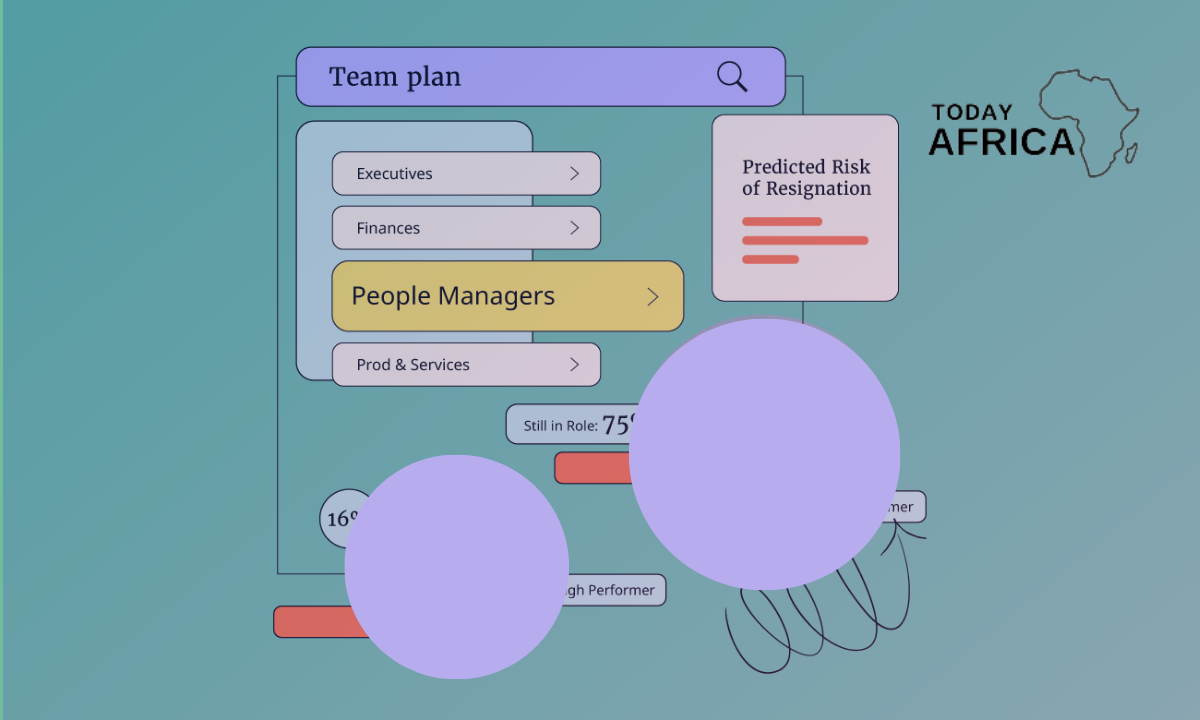Every entrepreneur knows that securing external financing – whether through venture capital, private equity, bank loans, or grants – can make or break growth plans.
Yet far too many businesses underestimate the importance of compliance and supporting documentation until due diligence is underway. Investors and lenders expect a transparent, organized trail of legal, financial, and operational records.
When you proactively align compliance requirements with thorough paperwork, you dramatically increase your chances of funding success.
In this article, you’ll learn why compliance and paperwork are not mere administrative burdens but strategic assets that demonstrate credibility, reduce risk, and accelerate your funding readiness.
What is funding readiness?
Funding readiness refers to the state in which your organization can confidently present its case to prospective investors or lenders. It encompasses four pillars: strategic clarity, financial stability, operational soundness, and legal/regulatory compliance.
While pitch decks and growth projections capture attention, it’s the underlying documentation—financial statements, corporate records, contracts, regulatory filings—that survives rigorous scrutiny.
According to a 2024 Pulse Survey by Deloitte, 68% of funding rounds face delays due to incomplete documentation, and 42% experience valuation adjustments because of unresolved compliance issues.
Key paperwork for funding readiness
1. Corporate document
- Certificate of incorporation and amendments
- Shareholder/stock ledger
- Board meeting minutes and resolutions
- Equity incentive plan documents
2. Financial records
- Audited financial statements (last three fiscal years)
- Year-to-date management accounts and variance analyses
- Cap table with ownership percentages, options, and convertible instruments
- Bank statements and reconciliations
3. Legal agreements
- Customer and supplier contracts
- Employment and contractor agreements (including IP assignment clauses)
- Leases (real estate, equipment)
- Loan and credit facility documentation
4. Intellectual property assets
- Patent and trademark filings (including pending applications)
- Copyright registrations
- Licensing agreements
5. Regulatory filings and approvals
- Tax registrations and clearance certificates
- Industry-specific licenses and permits
- Data protection impact assessments and registration proofs
Read Also: Top 22 Agritech Startups in Nigeria This Year
Compliance and paperwork
In practical terms, compliance means following all the legal and regulatory rules that apply to your business, and paperwork means maintaining the necessary documents.
Compliance can range from business registration, tax filings, and data privacy laws (like GDPR in Europe or Nigeria’s NDPR) to industry-specific regulations (financial, environmental, health, etc.).
Paperwork includes incorporation certificates, bylaws, shareholder agreements, financial statements, contracts, licenses and permits, intellectual property filings, and even employee handbooks.
Together, these form a “paper trail” that funders will scrutinize. Entrepreneur magazine stresses that at each fundraising stage – from seed to Series A – startups “have their own compliance requirements” and must manage “all the documentation” (investment agreements, disclosures, etc.) to ensure smooth funding.
In short, staying compliant and organized from day one prevents legal pitfalls later and signals to investors and lenders that you are a reliable, well-run business.
Streamlining due diligence with compliance and paperwork
Due diligence is often described as a “deep dive audit” by investors or lenders. Well-organized, indexed, and current documentation:
- Reduces review time – investor diligence can be completed in weeks instead of months.
- Limits scope creep – clear records make it harder for parties to request excessive additional information.
- Builds trust – transparency in compliance shows respect for process and governance.
Regulatory compliance spans local, national, and industry-specific requirements. Common compliance areas relevant to funding readiness include:
- Corporate governance (articles of incorporation, board resolutions, shareholder agreements)
- Tax compliance (filed returns, tax receipts, entity classification letters)
- Intellectual property (patents, trademarks, copyright registrations)
- Industry regulations (healthcare HIPAA, financial services SEC, data privacy GDPR/CCPA)
- Environmental, Social, and Governance (ESG) reporting for impact investors
Demonstrating a proactive compliance framework signals to investors that you understand and manage legal risks effectively. In 2025, ESG-related compliance has become a non-negotiable criterion for many institutional funds.
Venture capital funding
Venture capitalists demand rigorous due diligence. They expect startups to provide a polished “data room” of documents covering legal, financial and operational areas. A well-organized cap table, audited financials, clear contracts and intellectual property proofs are table stakes.
In practice, investors often won’t proceed unless your paperwork truly adds up. As the FinSMEs venture guide warns, at a minimum VCs want “clean, audited financials, fully executed contracts, [and] documented IP ownership”.
Messy or missing documents send alarms – for example, showing unredacted bank statements or inconsistent financial reports “screams unprofessionalism” and implies the team doesn’t take compliance seriously.
By contrast, entrepreneurs who emphasize that “all the data is in place” and proactively address compliance earn strong impressions. Indeed, transparent communication and organization “build confidence and trust” with investors, which are crucial for closing the deal.
Key documents and compliance tasks for VC funding often include:
- Company formation documents: Articles of incorporation, Memorandum/Articles of Association, and any amendments or capitalization certificates. (Proof your business is properly registered and structured.)
- Equity documentation: A current capitalization table and shareholder agreements. (Show who owns what and how equity is allocated.)
- Financial records: Historical financial statements (balance sheet, income, cash flow), tax returns and audited reports. (Investors will verify your numbers.)
- Contracts and legal agreements: All material contracts – customer/vendor agreements, partnership contracts, loan or SAFE/Convertible Note agreements, leases, etc. (These identify potential liabilities and commitments.)
- Intellectual property filings: Patents, trademarks, copyrights, and related assignment agreements proving ownership. (For tech and creative startups, IP is core asset.)
- Compliance certifications: Industry-specific attestations (for example, SOC 2 or ISO 27001 for security, HIPAA for health data, PCI DSS for payments, GDPR compliance statements). (Verifies you meet external standard.)
- Corporate governance records: Board meeting minutes, shareholders’ consents, stock option plans (ESOP documents) and vesting schedules. (Demonstrates good governance and that equity is properly managed.)
Covering these areas shows that you’ve thought through legal and financial risks. It also signals to investors that your team is proactive – an Entrepreneur contributor advises startups to develop a full compliance strategy (with clear policies, audits, and counsel) to avoid surprises.
If an investor can immediately access well-organized folders for “Legal,” “Finance,” “HR,” etc., it creates trust. For example, Finro’s checklist recommends a formal compliance checklist to “streamline” due diligence.
When everything is in order, you can even tell investors, “all our documents are here and up-to-date,” which in itself becomes a competitive advantage.
Read Also: 10 Best Crypto Portfolio Trackers This Year
Government grants and contracts
For nonprofits and startups seeking government or foundation grants, paperwork and compliance are just as vital – if not more.
Grant programs typically have strict eligibility criteria and extensive reporting rules. Winning a grant is competitive (success rates are often only 10–30%), so preparation is key. First, ensure you meet eligibility: for example, US nonprofits must hold valid 501(c)(3) status (or equivalent charitable registration abroad).
A grant will be immediately rejected if you’re ineligible. Once qualified, grant applicants must present clear mission statements, governance documents (like bylaws and board minutes), and a strong program plan aligned with the funder’s goals.
Essential documents for grant readiness often include:
- Nonprofit registration: Tax-exempt certificates (501(c)(3) in the US, charity registration in the UK or Nigeria, etc.), and any state or provincial registrations.
- Governing documents: Board of directors list, meeting minutes, organizational bylaws, and any certificates of good standing (showing taxes/filings are current).
- Financial statements: Recent audited financials or certified reports showing your budget, expenses and outcomes. (If you’re a new nonprofit, a detailed budget and projected statements are used for vetting.)
- Program plans and budgets: Formal project proposals with detailed budgets, KPIs, and timelines. Funders expect transparency on how the money will be used.
- Compliance documents: For certain grants, additional compliance may be required (e.g. ethics board approvals for research projects, environmental impact assessments, gender/equity policies, etc.). Prepare these in advance if applicable.
After a grant is awarded, recipients must demonstrate ongoing compliance. Grantmakers require periodic progress reports and financial accountability.
Instrumentl’s nonprofit checklist emphasizes this: “government grants often have lengthy and detailed reporting requirements” that include keeping accurate records, conducting audits, and “maintaining compliance standards”.
Being prepared with templates for reports and an audit-ready financial system will make these tasks manageable.

In practice, this means tracking all program expenses, documenting outcomes (with data or testimonials), and following any special rules set by the grant (e.g. branding requirements, hiring protocols).
By having robust records and policies in place beforehand, you not only increase your chances of winning the grant but also ensure you can comply with its terms afterward.
Read Also: Seed Funding for African Startups This Year
Bank loans and traditional financing
Even when seeking loans from banks or credit unions, paperwork and compliance matter greatly. Lenders are risk-averse and rely on documentation to evaluate creditworthiness.
The U.S. Small Business Development Center notes that missing or incorrect paperwork can doom a loan application: “if any of these documents are not submitted (or for some reason the information is incorrect), your application may be at a higher risk of getting rejected”.
To avoid this, small businesses should be ready with standard financial and legal files.
Typical loan application documents include:
- Income tax returns: Usually the past 2–3 years of personal and business tax returns, so the lender can verify income and debt ratios.
- Financial statements: Balance sheets, profit & loss statements, and cash flow statements (often audited or signed by an accountant) covering recent fiscal periods.
- Proof of business registration: Corporate or business registration certificates, licenses, permits, and Articles of Incorporation. (Lenders want to see the business is legit and in compliance with local regulations.)
- Certificate of good Standing: A formal certificate showing the company is up-to-date on state-required filings and taxes. This reassures banks that you maintain compliance with regulatory obligationss
- Credit reports: Personal and business credit reports (some lenders pull these themselves). Clean credit histories reflect financial responsibility.
- Collateral documents: If assets (equipment, property) will secure the loan, prepare deeds, titles, or appraisals.
- Additional forms: Lenders may also request a formal business plan or use-of-funds statement, plus copies of major contracts or outstanding debts.
Meeting these requirements demonstrates to banks that you have your house in order. If you’re missing financial statements or tax returns, or if your corporate records are out of date, the bank may decline.
In this way, the same principle holds: paperwork equals trust. As one guide puts it, even a small error (like missing a signature or not updating a license) can raise red flags.
Having a checklist of these loan documents – and verifying compliance (e.g. a good credit score, up-to-date licenses and insurance) – can make loan applications much smoother.
Read Also: Top 5 Marketing Trends to Watch This Year
Regional and global compliance considerations
It’s important to note that “compliance” varies by region, but its impact on funding readiness is global.
United States
In the United States, this includes federal and state requirements: annual reports to the Secretary of State, federal tax filings (and nonprofit 990 forms if applicable), Securities and Exchange Commission (SEC) regulations when raising capital, and data privacy rules (like HIPAA for health data). For government contract applicants, there are strict audit and anti-corruption rules (e.g. compliance with the False Claims Act or SBA loan regulations).
United Kingdom
In the United Kingdom, businesses must file confirmation statements with Companies House each year and submit corporate tax returns to HMRC. UK startups must also follow the UK Data Protection Act (akin to GDPR) and any sector licenses (for example, FCA registration for fintech firms). Nonprofits register with the Charity Commission and file annual returns.
Africa
Across Africa, compliance can be particularly complex. For example, Nigerian startups must register with the Corporate Affairs Commission and secure sector-specific licenses (like a fintech license from the Central Bank of Nigeria if you offer payments).
Nigerian law also enforces a Data Protection Regulation (NDPR) requiring data breach reporting and robust privacy policies for any personal data processor.

The fintech sector there has attracted over $1 billion in investment since 2020 precisely because compliance (e.g. central bank PSP licenses, anti-money laundering controls) gives investors confidence.
In fact, a report from Nigeria’s statistics agency found that regulatory issues are a top-five challenge for nearly 30% of new businesses.
South Africa similarly has strict exchange control rules and an AML “Grey List” issue that investors watch closely.
As one African startup advisor warns, investors around the world are “increasingly aware of cybersecurity risks” and other regulatory concerns – startups that ignore these requirements may face challenges securing funding or even get lower valuations.
In sum, whether you’re in the US, UK, Africa or elsewhere, adhering to local standards (tax, legal, labor, data privacy, etc.) is non-negotiable for funding readiness.
Global funders will also consider international regulations (for example, a U.S. VC may require a foreign startup to comply with U.S. laws like the Foreign Corrupt Practices Act if raising money).
Taking these seriously – and documenting your compliance (through audits, certifications, or legal opinions) – makes your venture accessible to more funding sources worldwide.
Read Also: Revenue-based Financing: Everything You Need to Know
Compliance checklist and templates
To put all this into action, create a funding readiness checklist and organize standardized templates. For example, set up a folder structure (digital or physical) with categories like Legal, Finance, HR, Operations, and Compliance. Within each, keep the templates and files you’ll need:
- Company formation: Articles of Incorporation (or equivalent), operating agreements, business registration documents, and any amendments. Template: a business registration reference sheet with jurisdiction-specific links.
- Ownership & governance: Current cap table spreadsheet (tracking all equity issuances), signed shareholder agreements, and board meeting minutes templates. (Having a template for board minutes ensures you capture decisions about equity, policy or fundraising.)
- Financial statements: Standard income statement, balance sheet and cash flow templates; tax filing checklists. (Lenders and investors expect historical financials, so these must be up to date.)
- Contracts & IP: Blank NDA, employment agreement (with IP assignment clause), contractor agreement templates; and a record of issued patents/trademarks with registration numbers.
- Licenses & permits: List of required industry permits (e.g. professional licenses, health permits, export licenses). Keep copies of all renewals and a schedule of renewal deadlines (ensuring “good standing” with regulators).
- Compliance policies: If your business processes data, use a GDPR/NDPR compliance checklist and privacy policy template. For cybersecurity, have a security policy outline. For financial services, compile KYC/AML procedures. (These templates show that you meet standards.)
- Grants- and loan-specific forms: For grant applicants, maintain a record of past grant proposals and reporting templates; for bank loans, assemble a personal financial statement form and loan amortization schedule.
Each of these serves as an example template or form you can fill and update. Having them ready is a practical way to demonstrate compliance.
For instance, a sample “Investor Data Room Index” file can list all your documents by folder, so you and your advisor never have to scramble for information during due diligence.
Small details matter: even a well-prepared redacted bank statement shows you understand privacy and financial compliance.
Best practices for compliance and paperwork management
- Establish a centralized document repository: Use cloud-based data rooms (e.g., Google Drive, Dropbox Business, or specialized platforms like DealRoom) with proper access controls and version histories.
- Adopt a compliance framework: Leverage standards such as ISO 37301 (Compliance Management Systems) to scope, implement, and measure compliance activities. Assign a compliance officer or coordinator.
- Leverage technology solutions: Compliance software (e.g., LogicGate, VComply) can automate tracking of filing deadlines, renewal reminders, and audit trails. Financial close management tools (e.g., BlackLine) ensure timely, accurate reporting.
- Conduct regular audits and gap analyses: Schedule quarterly internal reviews of key documents and processes. Address any lapses immediately, rather than waiting for a funding event.
- Engage expert advisors: Retain legal counsel for periodic compliance checks, accounting firms for audits, and tax advisors for jurisdictional updates. Their endorsements lend credibility to your records.
Read Also: 3 Business Line of Credit for Startup Without Revenue
Conclusion
Preparing compliance and paperwork for funding readiness is not a one-off task but an ongoing strategic initiative.
By integrating a structured compliance framework, leveraging technology, and maintaining meticulous records, you position your organization to navigate due diligence smoothly, inspire investor confidence, and accelerate your fundraising timeline.
Start today by conducting a gap analysis against the checklist above – your next funding milestone depends on it because they don’t just help you apply for funding – they help you win it.
Leave a comment and follow us on social media for more tips:
- Facebook: Today Africa
- Instagram: Today Africa
- Twitter: Today Africa
- LinkedIn: Today Africa
- YouTube: Today Africa Studio
















